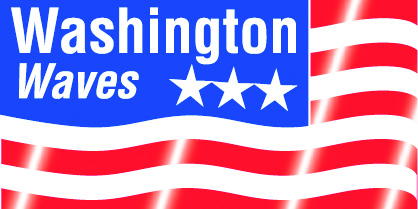Washington, D.C.—After top appropriators announced a “framework” on fiscal year 2023 spending, the House approved another stopgap measure to keep federal agencies funded for another week.
By a vote of 224 to 201, H.R. 1437 headed to the Senate.
Rep. Rosa DeLauro (D-Conn.), chair of the House Appropriations Committee, said the measure provides a simple date change to extend government funding through December 23 and allow time to wrap up work on an omnibus spending package for the rest of fiscal year 2023.
If the new deadline is not met, Senate Minority Leader Mitch McConnell (R-Ky.) served notice that Republicans next would insist on passing another temporary continuing resolution (CR) to go into early next year.
Republicans assume control of the House in January, giving them a much bigger role in hammering out details on such a package. Their top leaders urged members to oppose the House proposal, and only nine voted with Democrats to approve it.
“We should be passing a continuing resolution into next year instead of buying more time to rush through a massive spending package,” said Rep. Kay Granger (R-Texas), ranking member of the House Appropriations Committee.
Senate Majority Leader Chuck Schumer (D-N.Y.) planned to vote on the measure before the weekend, when the current CR expires.
For now at least, Senate Republicans remain open to working with Democrats to reach an agreement on an omnibus package.
Details on that effort were not provided even after the agreement on a framework was announced by top appropriators.
In addition to meeting the new deadline, McConnell also put down markers on what he called “poison pills” to overturn longstanding policy riders and “special treats” for Democrats in exchange for funding defense.
Permitting Reform
Senate Majority Leader Chuck Schumer (D-N.Y.) confirmed Sen. Joe Manchin (D-W.Va.) will get a floor vote on his controversial permitting reform amendment when the Senate takes up the House-passed National Defense Authorization Act (NDAA).
Considered must-pass legislation, the NDAA includes the Water Resources Development Act (WRDA), another popular bill that also is on the congressional must-pass list.
Adding Manchin’s language to the NDAA would require the bill to go back to the House for another vote before it heads to President Joe Biden’s desk to be signed into law.
“We’re going to vote on that amendment,” Schumer told reporters, referring to the Manchin proposal.
“As you know, Republicans have blocked it in the House, even though permitting reform is something that they’ve always supported in the past. So I hope they’ll help us and support it.”
Manchin called on his Senate colleagues to add his permitting reform proposal to the NDAA.
“There has never been a more critical time in our nation’s history for Congress to act to protect American energy security and reclaim energy independence,” he said.
In addition to obvious time constraints, however, Manchin’s proposal once again appears to have drawn stiff opposition among other Democrats in both chambers.
Six senators sent a letter to Schumer and House Speaker Nancy Pelosi (D-Calif.) urging them to keep fossil fuel permitting changes off the NDAA and other end-of-year legislation.
They urged the leaders to move permitting reform as a standalone bill subject to robust and open debate.
The group included Democratic Sens. Jeff Merkley of Oregon, Tammy Duckworth of Illinois, Elizabeth Warren and Edward Markey, both of Massachusetts, Cory Booker of New Jersey and Bernie Sanders, a Vermont Independent.
In a tweet, Rep. Raul Grijalva (D-Ariz.), chairman of the House Natural Resources Committee, cited previous opposition to such legislation, both in and out of Congress.
“It’s time to let it go for good,” Grijalva said.
Meanwhile, WRDA supporters are anxious to get final congressional approval to that widely supported legislation.
They continue to single out specific provisions of interest to the waterways industry.
The National Waterways Conference (NWC) described as “great news” the House passage of WRDA and Coast Guard authorization as part of NDAA.
Tanker Security Program
The Maritime Administration (MarAd) requested applications from eligible candidates for possible participation in the Tanker Security Program (TSP) to establish a fleet of privately owned product tank vessels to meet national defense requirements and maintain a U.S. presence in international commercial shipping.
Applications for enrollment must be received by February 7.
They may be submitted electronically to sealiftsupport@dot.gov or in hard copy to the Tanker Security Program, Maritime Administration, U.S. Department of Transportation, 1200 New Jersey Ave. SE, Washington, D.C. 20590.
Application forms are available upon request or may be downloaded from MarAd’s website at maritime.dot.gov.
For additional information, contact David Hatcher at 202-366-0688.
Port Access Studies
The Coast Guard announced a series of studies on routes used by ships to access ports on the Southeast Atlantic Coast of the U.S. and requested comments on the studies that will be separate but may expand on proposals in other rulemakings.
Ports specifically mentioned by the Coast Guard include those on the Atlantic Coast of South Carolina, Georgia, Florida, the Commonwealth of Puerto Rico and the U.S. Virgin Islands.
Conducted by the Coast Guard’s Seventh District, the initiative is expected to be completed by December 2026.
Comments must be received by February 13, and requests for a public meeting must be submitted by January 13.
Comments may be submitted by docket number USCG-2022-0347 at www.regulations.gov.
For additional information, contact Lt. Ryan Gilbert at 305-415-6750 or Ryan.A.Gilbert@uscg.mil.




